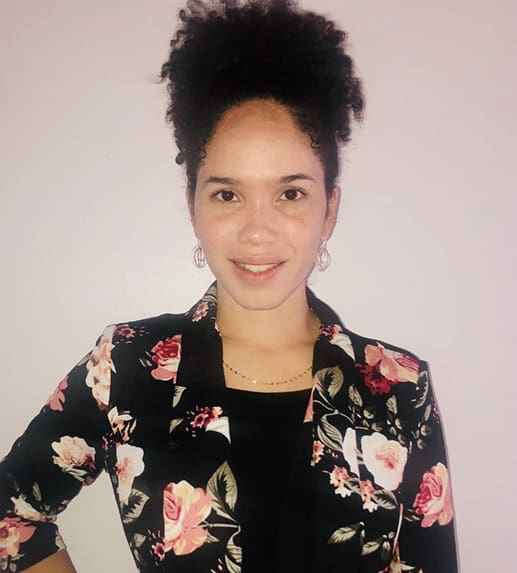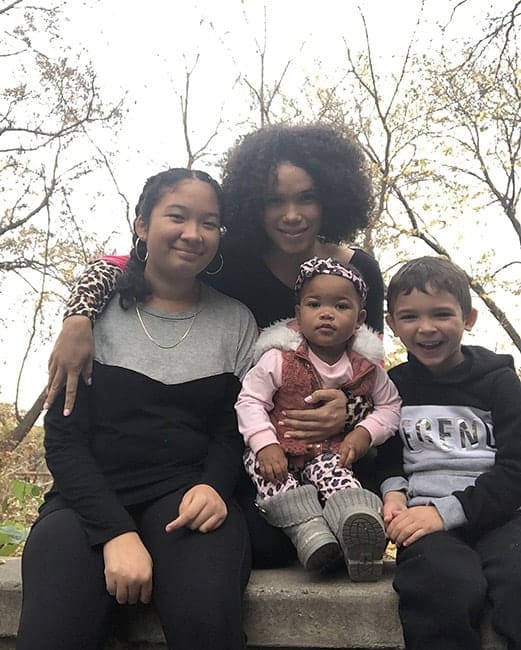
ANITA F
Special Education Teacher
GRADUATION YEAR FROM JP
2012
JP CAMPUS
Minneapolis
HOPES FOR THE JP FELLOWSHIP
To change hearts and minds for the betterment of society
WHAT SOCIAL ISSUE/S DO YOU WANT TO ADDRESS?
Instability
Anita is special education teacher and a mother of three who graduated from Jeremiah Program’s Minneapolis campus in 2012.
Describe your experience with Jeremiah Program.
I was in college before the Jeremiah Program. I found out about JP while attending the university, all the while living at the shelter with my newborn baby and working. While I was there, I graduated from two schools: Biblical studies and a bachelor’s in social work.
What I found valuable about the program was the community piece. I have two friends that didn’t finish graduating from Jeremiah Program; one went on to obtain her master’s degree. I’m still friends with them to this day. There were situations where I didn’t have anyone to call on in case of an emergency. Because I had that community relationship with some of the girls there, they were, at one point, able to get my daughter because I was so sick that I couldn’t even crawl to go take care of her. The other thing I liked was the mentorship, the ability to have somebody check in on you. I appreciated that.
Tell us a bit about your life now.
I am a single mom again. I am a special education teacher; I obtained my master’s degree in teaching with the emphasis on emotional behavioral disabilities by the age of 31. I am in the process of developing in international nonprofit, and I’m currently waiting for the approval from the IRS. There will be six different programs, but the first program we’re focusing on is for former and not-adopted foster youth or orphans who have left the system with nobody. When I left the system, there wasn’t a law in place to save me. It was either move into a shelter or move into a four-year college so that I could have a roof over my head. There is, now, for former not-adopted foster youth in the US, but there’s still a lot of things going on in other countries where the outlook is even worse than what it is in the US.
I’m designing the curriculum for the community-based program of my nonprofit. Eventually, it’ll be something similar to Jeremiah Program with housing, but that’s just the first program we’ll focus on. We have other programs we’re going to start some years down the line.
How has being part of Jeremiah Program influenced you and the changes you’ve made?
Jeremiah program has influenced me to keep going on what I intended to focus on. There was a part of my life in Jeremiah when one of the mentors was pushing me not to change my major. I was almost done with it, and I just felt like, “Man, I’m 24, I’ve changed my major so many times, and I just don’t even want a bachelor’s anymore. I’m just going to be a massage therapist and I’ll just start my own business.” But [she] pushed me to continue, to finish it out, and not just stop and start something else. And, so, I feel like Jeremiah Program has pushed me to continue to complete something instead of starting something else. Also, I feel like Jeremiah has influenced me that I, too, can start a nonprofit from a simple idea and have it expand to be something awesome.
What is your vision for the alumni program?
My vision is to be able to have other women learn from my mistakes and successes. I want them to be able to grow beyond how they’ve grown within Jeremiah. Even after leaving Jeremiah, I want them to be able to overcome any obstacle, no matter what they’ve faced, and my hope is to help give them insight on identifying healthy relationships, what red flags are, so that they don’t find themselves in a similar situation as before.
What kinds of issues would you like to see the alumni network prioritize?
I’d like to see the alumni network prioritize domestic violence because domestic violence is beyond domestic. It can follow you wherever you go. And it can be more than just physical. It’s emotional abuse. It’s financial abuse. I feel that may have been something missed along the way when I was coming through Jeremiah. I feel like we can go deeper.
What were some of the highlights of the relational organizing training for you?
One highlight I thought was important to know is the power we have in community. If a community gets together, you have the power to make changes, even when the powers above you are supposed to have more of the power. If we come together as a community and devise a plan to create better for ourselves, we could definitely make that happen. Powers don’t just lie within the decision makers above you. They can also lie within your community to bring that change about.
What is the most important change our society needs to make to better support single mothers?
Single mothers are individuals just like anybody else. Put aside your preconceived perceptions of what you think their reason is to be single. Put aside your preconceived thoughts about anything that would be a stereotype. Every single mother has their own story as far as what happened to get them there. And if you put your bias, thoughts, and opinions out there, instead of finding out who they are ahead of time, what you’re really doing is just holding them back. Listen to who they are as individuals.

